‘Like a gas chamber’: the air pollution throttling Delhi
Indian capital has tried cloud seeding to address the crisis, which has seen schools closed and outdoor events suspended
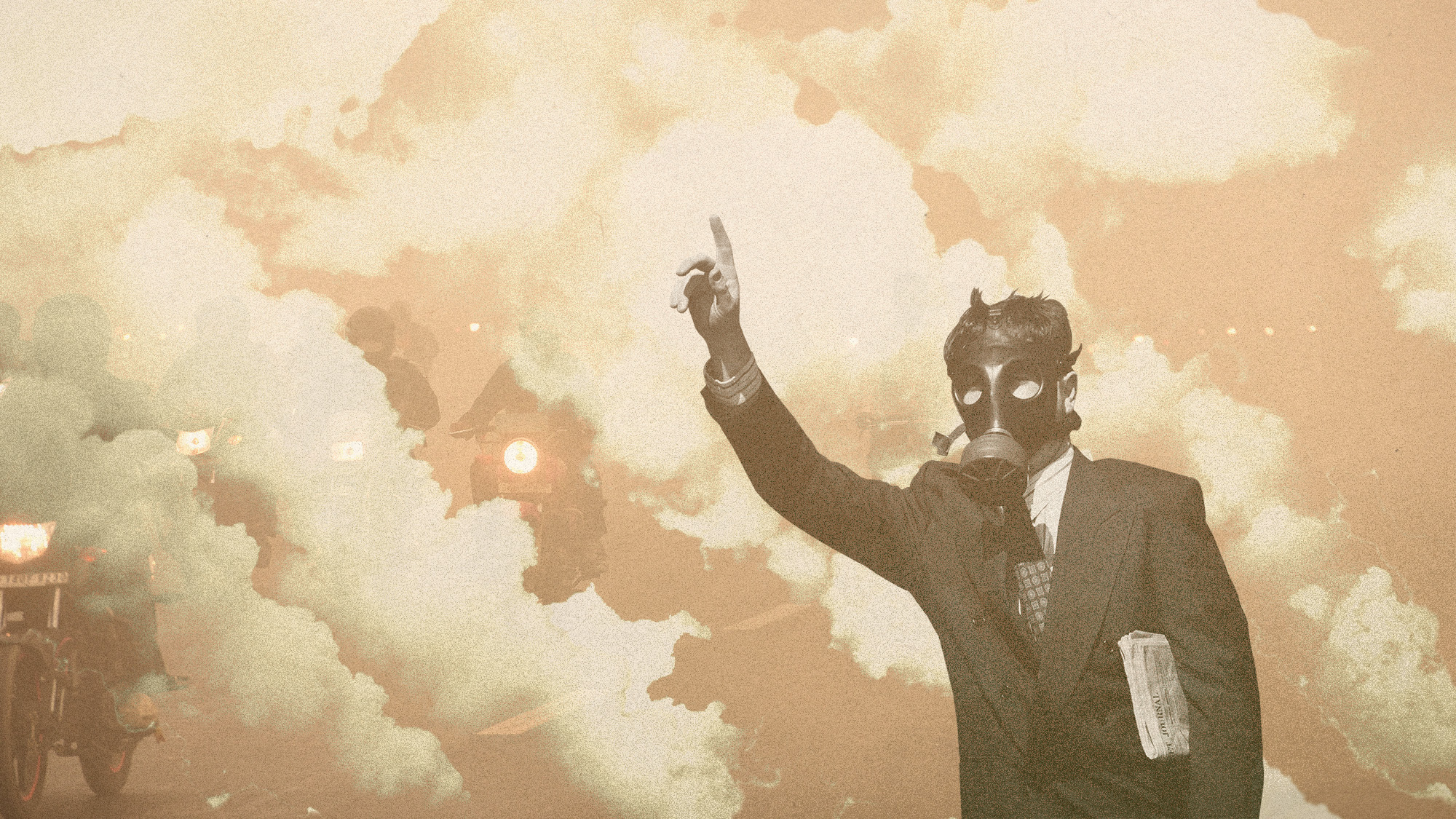
A free daily email with the biggest news stories of the day – and the best features from TheWeek.com
You are now subscribed
Your newsletter sign-up was successful
Protesters in Delhi wore oxygen masks and carried gas cylinders as they took to the streets to highlight the authorities’ failure to tackle the city’s ever-worsening air pollution.
There’s a “dystopian” environment in the Indian capital as a particularly “persistent toxic haze” shrouds the city, with slow winds and cooling temperatures preventing pollutants from dispersing, said The Independent.
‘Gasping for breath’
India’s “winter air pollution season” arrived “with a vengeance” this year, “blanketing New Delhi in a sickly-looking, toxic yellowish haze”, said the Financial Times. The mix of “smoke from winter stubble burnt by farmers” and “fumes from cars, factories and power plants” makes everyday life a struggle; “even a few minutes outdoors leaves you feeling ill and gasping for breath.”
The Week
Escape your echo chamber. Get the facts behind the news, plus analysis from multiple perspectives.

Sign up for The Week's Free Newsletters
From our morning news briefing to a weekly Good News Newsletter, get the best of The Week delivered directly to your inbox.
From our morning news briefing to a weekly Good News Newsletter, get the best of The Week delivered directly to your inbox.
Over recent weeks, Delhi’s Air Quality Index, which measures the level of fine particulate matter in the air that can clog lungs, has been “hovering” between 300 and 400, nearly 20 times the acceptable limit, said the BBC. On Friday, it reached 455 – “equivalent to smoking nearly 11 cigarettes a day”, said The Indian Express.
The situation is so severe that the Supreme Court has asked health authorities to cancel all outdoor sports activities in schools until the haze lifts. The court ruled that allowing children to take part in such activities during November and December, when pollution levels are at their peak, is like “putting them in a ‘gas chamber’”, said the news site.
‘No panacea’
Authorities carried out an unsuccessful trial of cloud seeding, “firing small particles” into clouds to produce rain. The process is used around the world, but experts say it is “no panacea”, said The Guardian. Although it is meant to “produce more frequent and heavier rain than the clouds would otherwise release”, in practice the impact is “often small”. Two professors told the newspaper that the plan to use it in Delhi was a “gimmick”.
As for Delhi residents, their options depend on their economic status. During the “miasma”, the rich “retreat to their houses, where air purifiers offer some respite”, said the Financial Times, and others “decamp for the cleaner climes of Himalayan hill stations”. But “the poor have to put up with the poison air”.
A free daily email with the biggest news stories of the day – and the best features from TheWeek.com
According to recent polling, almost four out of five households in the Delhi metropolitan area “have had at least one member fall ill due to toxic air in the past month”, said the Hindustan Times. One doctor at the All India Institute of Medical Sciences said hospital wards “are overflowing with people suffering from wheezing, breathlessness, burning eyes, and fast-deteriorating COPD”.
Chas Newkey-Burden has been part of The Week Digital team for more than a decade and a journalist for 25 years, starting out on the irreverent football weekly 90 Minutes, before moving to lifestyle magazines Loaded and Attitude. He was a columnist for The Big Issue and landed a world exclusive with David Beckham that became the weekly magazine’s bestselling issue. He now writes regularly for The Guardian, The Telegraph, The Independent, Metro, FourFourTwo and the i new site. He is also the author of a number of non-fiction books.
-
 Bondi, Democrats clash over Epstein in hearing
Bondi, Democrats clash over Epstein in hearingSpeed Read Attorney General Pam Bondi ignored survivors of convicted sex offender Jeffrey Epstein and demanded that Democrats apologize to Trump
-
 Are Big Tech firms the new tobacco companies?
Are Big Tech firms the new tobacco companies?Today’s Big Question Trial will determine if Meta, YouTube designed addictive products
-
 El Paso airspace closure tied to FAA-Pentagon standoff
El Paso airspace closure tied to FAA-Pentagon standoffSpeed Read The closure in the Texas border city stemmed from disagreements between the Federal Aviation Administration and Pentagon officials over drone-related tests
-
 The world’s uncontacted peoples under threat
The world’s uncontacted peoples under threatThe Explainer Indigenous groups face ‘silent genocide’ from growing contact with miners, missionaries and influencers
-
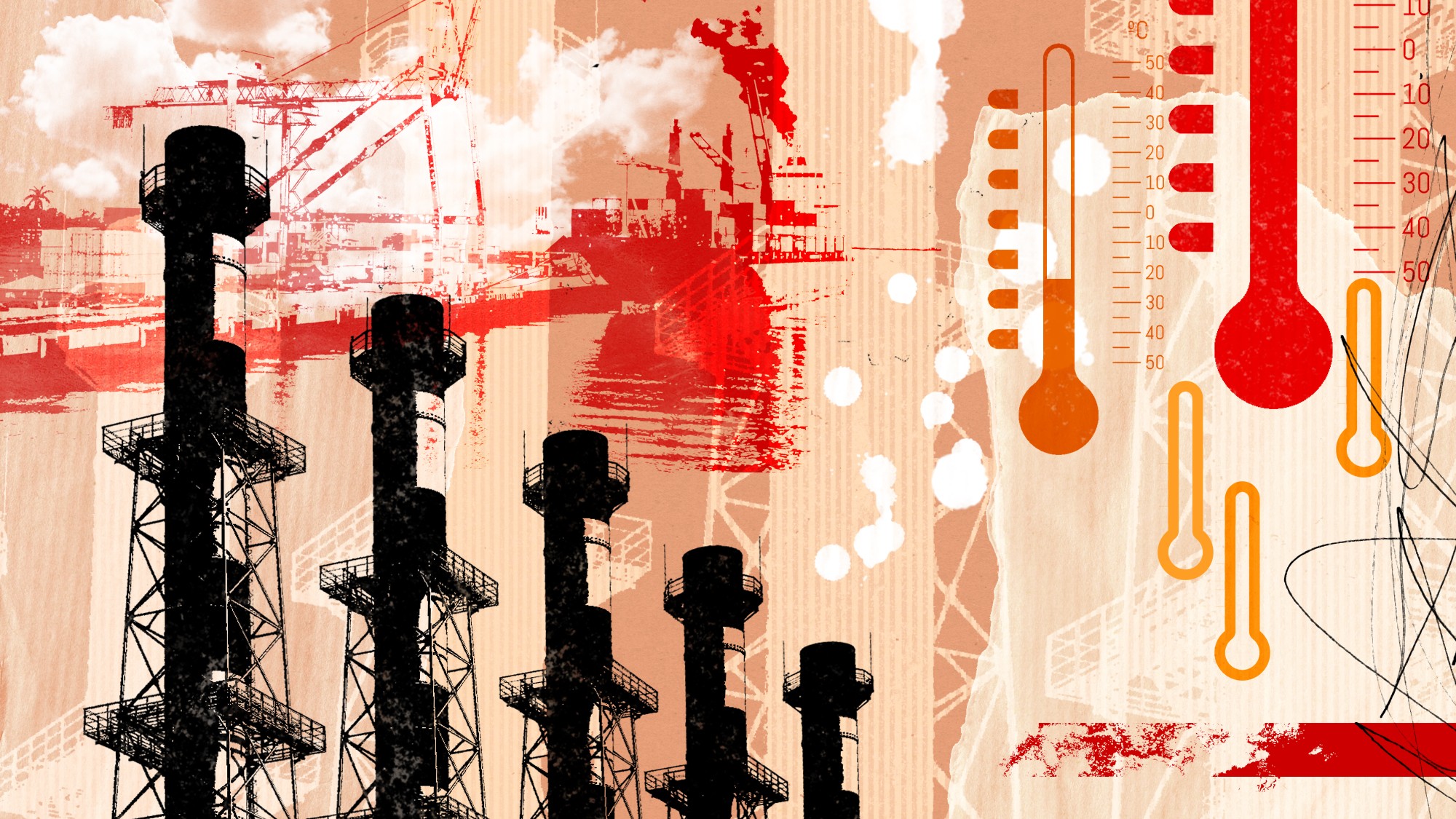 How clean-air efforts may have exacerbated global warming
How clean-air efforts may have exacerbated global warmingUnder the Radar Air pollution artificially cooled the Earth, ‘masking’ extent of temperature increase
-
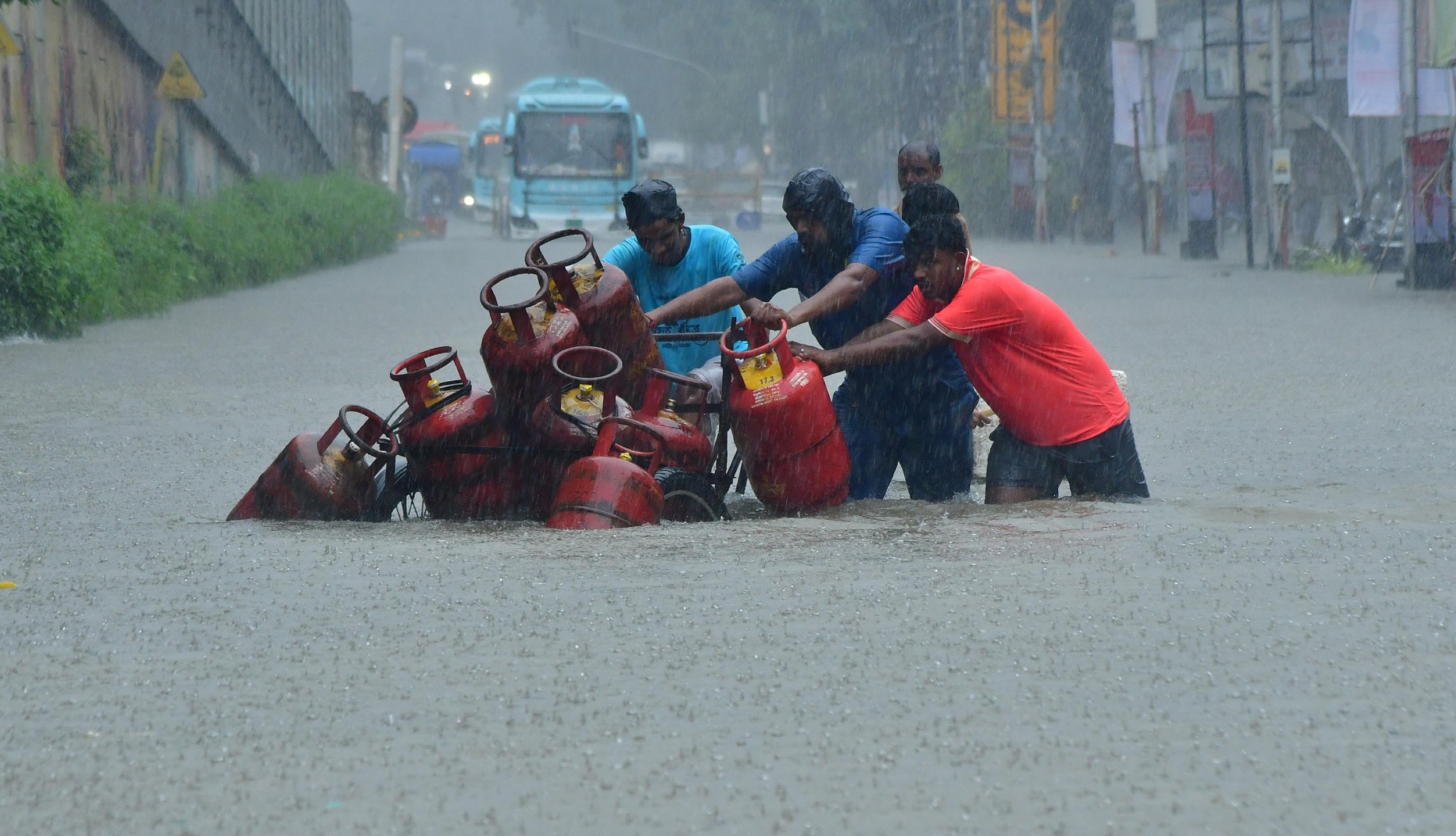 Cloudbursts: what are the 'rain bombs' hitting India and Pakistan?
Cloudbursts: what are the 'rain bombs' hitting India and Pakistan?The Explainer The sudden and intense weather event is almost impossible to forecast and often leads to deadly flash-flooding and landslides
-
 Why is the world so divided over plastics?
Why is the world so divided over plastics?Today's Big Question UN negotiations on first global plastic treaty are at stake, as fossil fuel companies, petrostates and plastic industry work to resist a legal cap on production
-
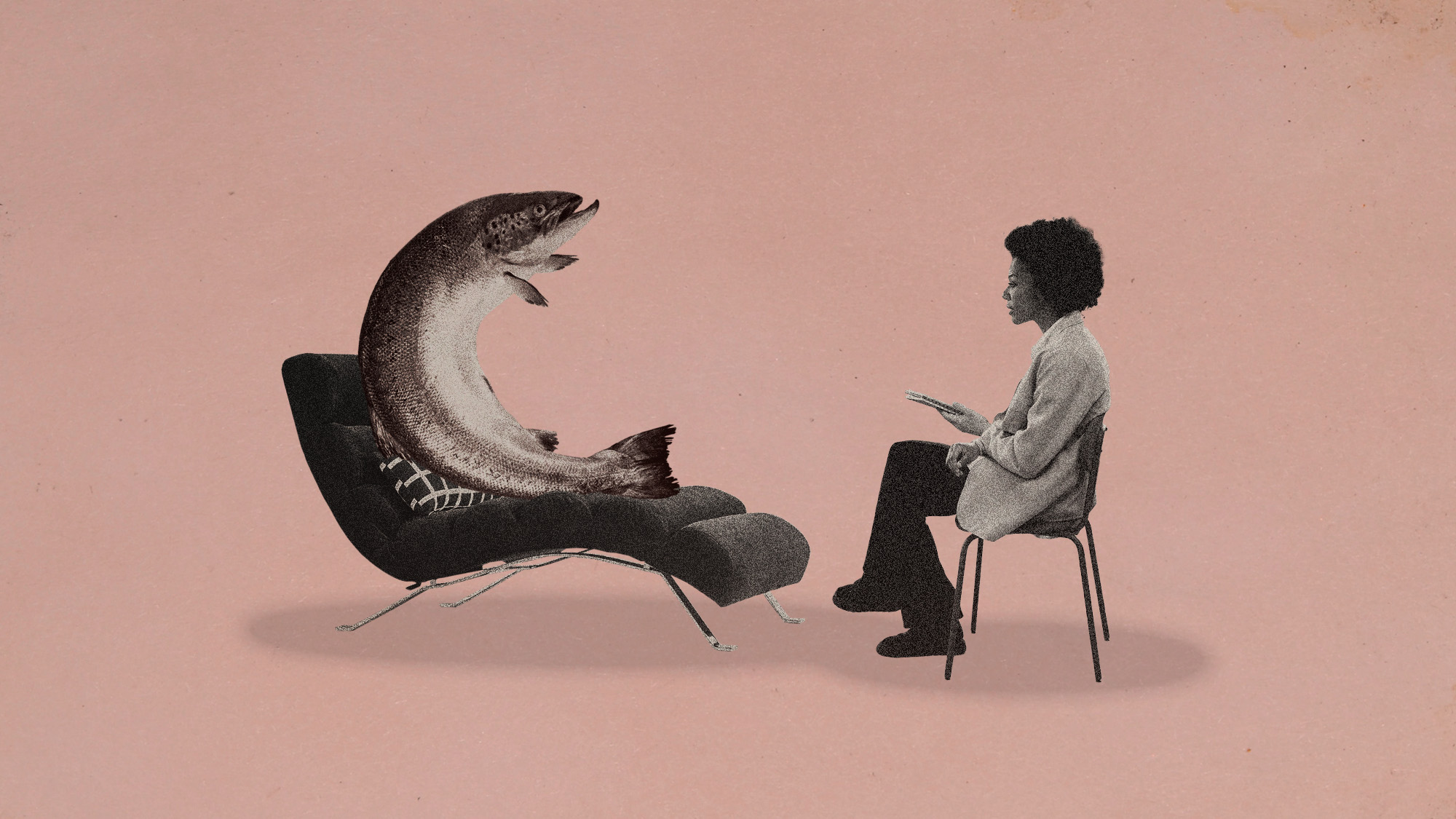 Anti-anxiety drug has a not-too-surprising effect on fish
Anti-anxiety drug has a not-too-surprising effect on fishUnder the radar The fish act bolder and take more risks
-
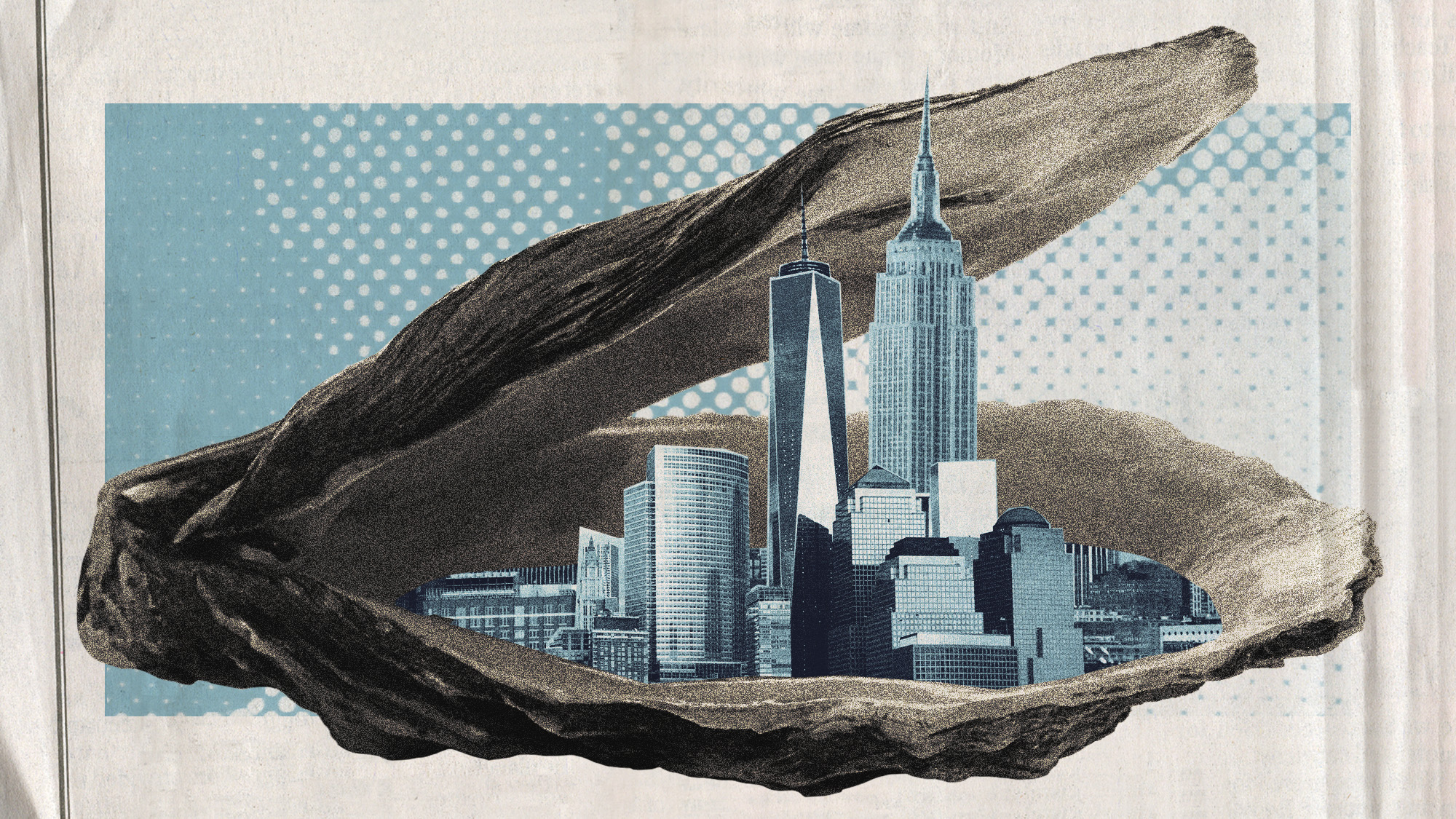 Oysters from New York's past could shore up its future
Oysters from New York's past could shore up its futureUnder the Radar Project aims to seed a billion oysters in the city's waterways to improve water quality, fight coastal erosion and protect against storm surges
-
 How loss of India's vultures might have led to half a million deaths
How loss of India's vultures might have led to half a million deathsUnder the Radar Near extinction of the invaluable carrion eaters in 1990s left cattle carcasses piled up and disease spreading widely
-
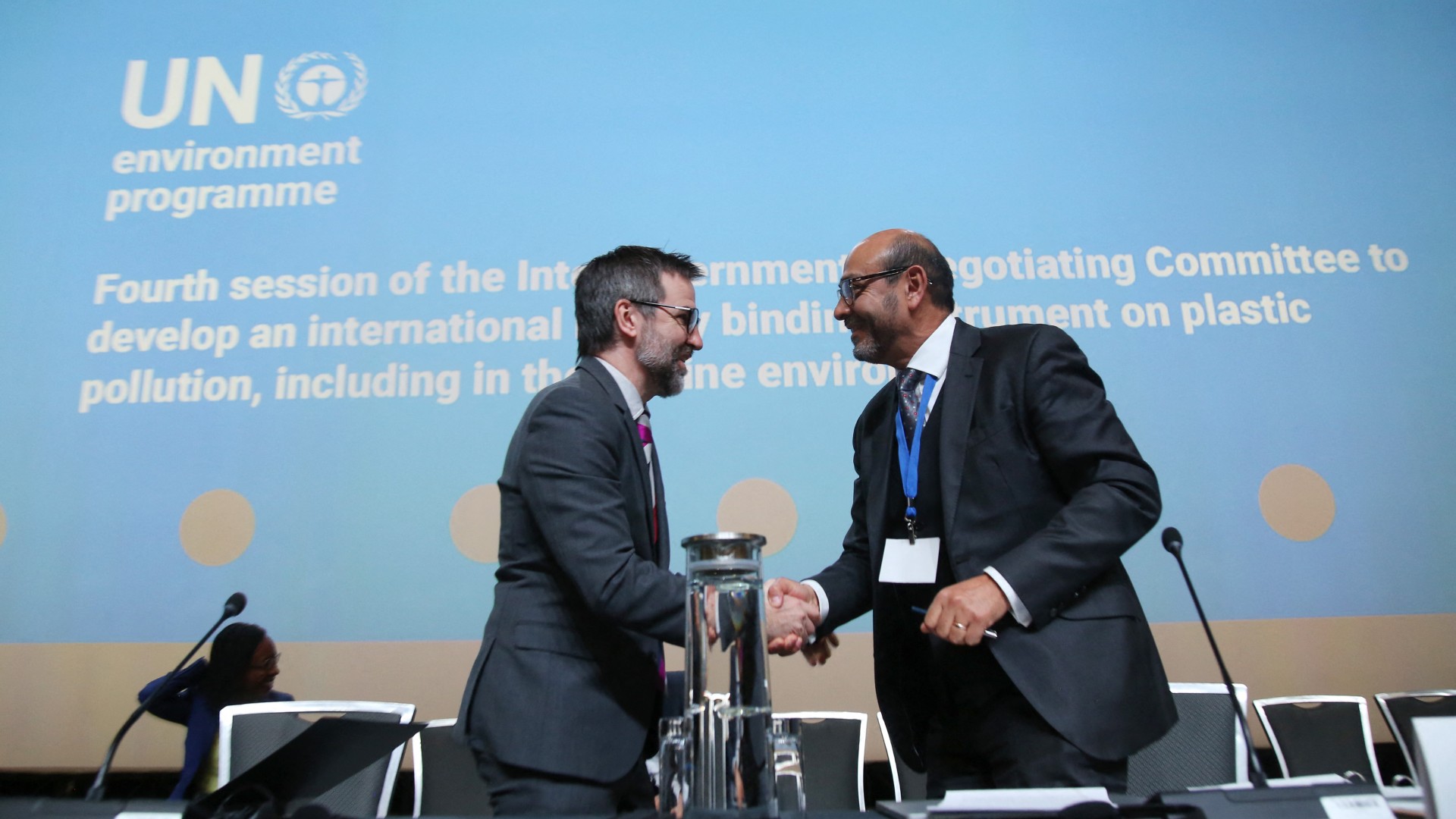 Ottawa climate talks: can global plastic problem be solved?
Ottawa climate talks: can global plastic problem be solved?In the Spotlight Nations aim to draft world's first treaty on plastic pollution, but resistance from oil- and gas-producing countries could limit scope